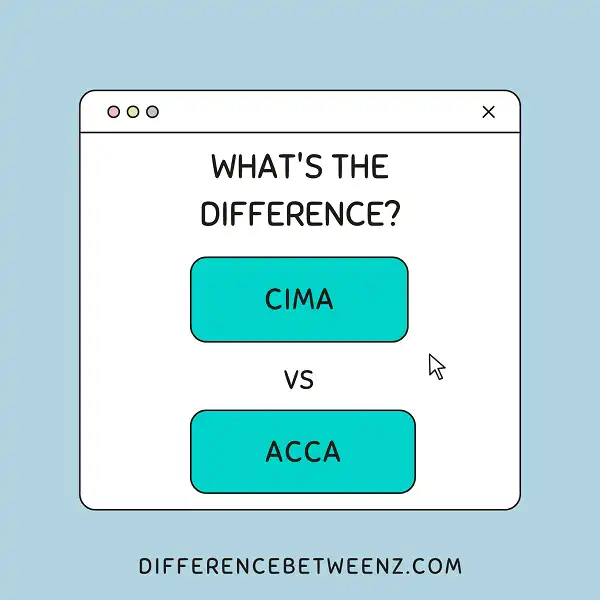Choosing between CIMA and ACCA can be a difficult decision. Both qualifications offer excellent opportunities for career growth, but there are some important differences to consider. In this blog post, we will explore the key similarities and differences between CIMA and ACCA. We will also help you decide which qualification is right for you.
What is CIMA?
CIMA is the world’s largest professional body of management accountants. They offer the most widely recognized qualification for management accountants and financial controllers. CIMA members and affiliates work in industry, commerce, the public sector, not-for-profit organizations, and academia.
- CIMA works closely with employers and recruits to ensure that their qualification meets the needs of employers globally. CIMA is committed to developing the next generation of finance leaders and leveraging the power of technology to deliver better business outcomes.
- CIMA members are expected to uphold the highest ethical standards and act in the best interests of society. CIMA’s mission is to help people and businesses thrive in a changing world. CIMA has over 620,000 members and students in 179 countries. CIMA is an internationally recognized qualification that will open doors around the world.
- CIMA is also a specialist provider of workplace learning solutions, digital content, and textbooks for accounting students and professionals. CIMA provide free resources on its website which include ebooks, webinars, articles, templates, and much more. Visit CIMA’s website today to learn more about how they can help you advance your career in finance.
What is ACCA?
ACCA is the acronym for the Association of Chartered Certified Accountants. ACCA is a professional body for accountants that provides ACCA qualifications and membership in order to promote, develop and uphold the highest standards of ethics and professionalism in the accounting profession worldwide.
- ACCA qualifications are globally recognized, and ACCA members have access to exclusive resources, events, and networking opportunities. ACCA also advocates for the development of strong global economies and thriving businesses.
- In order to become a member of the ACCA, candidates must pass an ACCA exam and meet certain experience requirements. Once candidates become members, they are required to uphold the ACCA code of ethics and maintain their membership through continued professional development.
- ACCA members are highly sought after by employers due to their demonstrated commitment to excellence in the accounting profession.
Difference between CIMA and ACCA
CIMA and ACCA are both acronyms for professional qualifications in the finance and accounting industry. CIMA stands for Chartered Institute of Management Accountants, while ACCA stands for Association of Certified Chartered Accountants. Both organizations offer qualifications that are highly respected by employers worldwide. CIMA is focused on management accounting, while ACCA covers a broader range of topics including financial accounting, audit, and taxation. CIMA qualifications are typically more expensive than ACCA qualifications, but they are also generally more highly regarded by employers. CIMA-qualified accountants tend to be in higher demand than ACCA-qualified accountants, especially in senior positions.
Conclusion
So what’s the difference between CIMA and ACCA? The main distinction is that CIMA focuses exclusively on business, while ACCA offers a more general accounting qualification. Both qualifications are highly respected and will give you a strong foundation in financial management, but if you’re looking to specialize in business, CIMA is the way to go.


